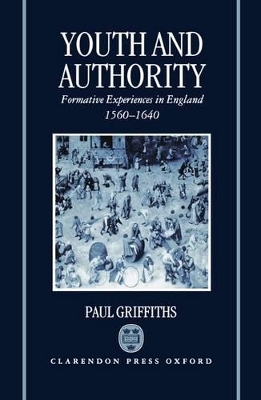It is now well-known that there was a separate age of youth in sixteenth-and seventeenth-century society (and before) but in much of the writing on this subject, youth has emerged as a passive construct of the adult society, lacking formative experiences. Paul Griffiths seeks to redress this imbalance by presenting a more `positive' image of young people, showing that they had a creative presence, an identity, and a historical significance which has never been fully
explored.
The author looks beyond the prescriptive codes of moralists and governors to survey the attitudes and activities of young people, examining their reaction to authority and to society's concept of the `ideal place' for them in the social order. He sheds new light on issues as diverse as juvenile delinquency, masculinity, the celebration of Shrovetide, sexual behaviour and courtship, clothing, catechizing, office-holding, vocabularies of insult, prostitution, and church seating plans. His
research reveals much about the nature of youth culture, religious commitment, and master/servant relations, and leads to the identification of a separate milieu of `masterless' young people.
Contemporary moralists called youth `the choosing time', a time of great risks and great potential; and the best time to incalculate political conformity and sound religion. Yet the concept of choice was double-edged, it recognized that young people had other options besides these expectations. This ambiguity is a central theme of theis book which demonstrates that although there was a critical politics of age during this period, young people had their own initiatives and strategies and grew up
in all sorts of ways.
- ISBN10 0198204752
- ISBN13 9780198204756
- Publish Date 4 April 1996
- Publish Status Active
- Publish Country GB
- Publisher Oxford University Press
- Imprint Clarendon Press
- Format Hardcover
- Pages 472
- Language English
